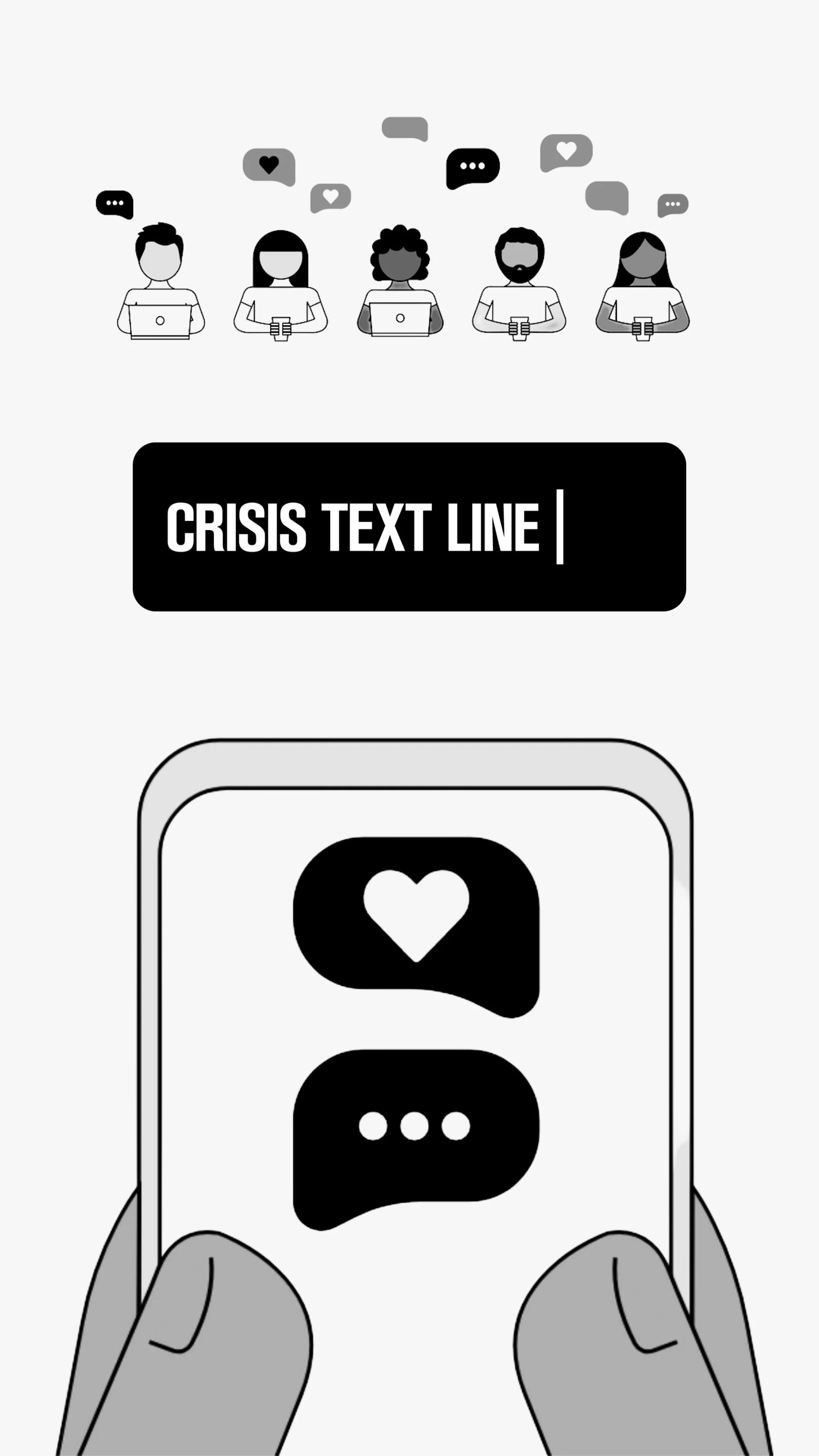161. A Parent’s Guide to Teen Mental Health feat. Ann Coleman
listen to this episode:
Tune in and subscribe on your favorite platform: Apple Podcasts | Spotify | Stitcher | Google Play | Radio Public | PocketCasts | Overcast | Breaker | Anchor
Today's guest is Ann Coleman— a mom, attorney, educator, podcaster, and an advocate for parenting teens. After her son struggled with ADHD and multiple mental health disorders and behavior issues during his teen years, Ann quit practicing law to study adolescence and help other parents learn what she hadn’t known. We discuss her experiences parenting a son struggling with his mental health and how her emotions affected her parenting, advice to parents who want to understand their role in their teen’s mental health and improve their relationship with their child, what parents can do if their teen asks for help with their mental health, insights for parents who are out of ideas on how to help their teen get better, tips on how parents can maintain their mental health while their teen struggles, daily ways parents can support their teen’s mental health and prevent them from struggling in the future, and research and resources on raising teens that all parents should know about.
Mentioned In The Episode…
+ Speaking of Teens Facebook Group
+ Emotional Agility by Susan David
+ Raising an Emotionally Intelligent Child by John Gottman
+ No Drama Discipline by Daniel J. Siegel & Tina Payne Bryson
+ Positive Discipline for Teenagers by Jane Nelsen & Lynn Lott
SHOP GUEST RECOMMENDATIONS: https://amzn.to/3A69GOC
Episode Sponsors
🛋This week's episode is sponsored by Teen Counseling. Teen Counseling is an online therapy program with over 14,000 licensed therapists in their network offering support with depression, anxiety, relationships, trauma, and more via text, talk, and video counseling. Head to teencounseling.com/shepersisted to find a therapist today!
About She Persisted
After a year and a half of intensive treatment for severe depression and anxiety, 20-year-old Sadie recounts her journey by interviewing family members, professionals, and fellow teens to offer self-improvement tips, DBT education, and personal experiences. She Persisted is the reminder that someone else has been there too and your inspiration to live your life worth living.
a note: this is an automated transcription so please ignore any accidental misspellings!
Sadie: [00:00:00] Welcome to She Persisted. I'm your host, Sadie Sutton, a 19 year old from the Bay Area studying psychology at the University of Penn. She Persisted is the Teen Mental Health Podcast made for teenagers by a teen. In each episode, I'll bring you authentic, accessible, and relatable conversations about every aspect of mental wellness.
You can expect evidence-based, teen approved resources, coping skills, including lots of D B T insights and education in. Each piece of content you consume, she persisted, Offers you a safe space to feel validated and understood in your struggle, while encouraging you to take ownership of your journey and build your life worth living.
So let's dive in this week on She persisted.
Ann: You know, people like to say, Oh, it's not your fault.
It's not your fault. Your teen is doing this or doing that. And in a lot of ways, maybe it isn't, you know, it's not our fault, the temperament or, some of their personality issues and things like that. But it is a lot of our fault, the way we respond to their [00:01:00] behavior, because we can either make it better or we can make it worse.
And usually we're making it worse.
Sadie: Hello, hello, and welcome to Sheep Resisted. I am so excited you're here today. We have an incredible episode, as I'm sure you can tell from the excerpt we just heard.
Anne Coleman is on the podcast today. She is a mom, attorney, educator, podcaster, and an advocate for parenting teens. She's the founder of Neuroagility and her podcast, which is called Speaking of Teens, and I just love her perspective, her insight, everything that she brings to this conversation.
We actually did a swap, so this was our second hour talking about teen mental health and parent teen relationships. And we could have gone on for longer, but we're both introverts, we were both like, okay, time to sit by ourselves quietly for a long time and then continue to socialize with the world. But this was just such an incredible conversation.
What makes Anne's perspective so interesting is that she is the parent of a teen who struggled with mental health challenges. They navigated [00:02:00] treatment, so they had a lot of parallels to what I went through and what my family navigated. And Anne's perspective provides a lot of answers to some of my most frequently asked questions, which is How do you navigate treatment?
What was it like for your parents? What do you do as a parent to support your teen? How do you know if they're struggling? All of those questions that you guys email or submit on the website or DM or all of these different places that you ask these questions because there's a lot of unknown involved here and is able to give a voice to.
And I think as a, as a teen, this conversation was so healing. I think we don't, at least I don't always have these types of conversations with my parents. I don't think that we often engage in these super vulnerable sit down discussions about parenting styles and what works and what doesn't and why you might be struggling to show up as your best self in your relationships.
And so to hear a parent voice these different dynamics that can take place and have so much compassion and hope and love for a kid who's [00:03:00] struggling was just really, really incredibly cool. And so this is for the parents and the teens. I know I named it for parents and I know a lot of the questions are directed at parents, but if you're a teen, please listen to this conversation because it's like inner child work.
You're going to love it and learn a lot. So to get into the details, we talk about her experiences. navigating teen mental health challenges from a parent's perspective she gets super vulnerable on how her own emotions and lived experiences affected her parenting and also how that was negatively impacting how she was supporting her son when he was struggling.
We talk about the parent side of things and how they play a role in their teen's mental health and then how you can improve your relationship with your child based off of that. We talk about what parents can do if their teen goes to them and asks for help with their mental health.
And similarly if a teen, how you can go to your parent and ask for support. We also talk about insights for parents who are completely out of ideas and stuck with how to support their teen, which is a really common thing that I hear.
And of course we're touching on how [00:04:00] parents can support their own mental health while their teen is struggling because that is so important and I don't think it gets talked about enough.
Lastly, just touch on daily ways that you can support your teen and prevent struggling in the future, which is a very hard question to answer and a big question mark that a lot of parents have, but it was phenomenal to get Anne's perspective on how you can set yourself up for success, and then also she gives all of her favorite resources and research on raising teens and parenting that you guys should read and consume after this episode.
So from start to finish, a phenomenal conversation. One of my favorite episodes I've done in a while. It's definitely up there in the top episodes, and I know that you're going to love it as much as I did. Please share this with a teen or a parent or a family member or a friend who is interested in teen mental health or has a teen in their life or they are a teen because I think this conversation is so powerful.
And as always, if you like the episode, leave a review, share on social media. All the things. Thank you guys so much for listening. I don't [00:05:00] say it enough, but I cannot tell you guys how much it means that you guys tune in to these episodes. I think I have some dissociation with the fact that people actually listen, because I started with no downloads.
And I started with like, 20 out downloads over two.
So, I know the numbers are out there. We're almost at 200, 000 downloads in the next couple of weeks, which is absolutely insanity, and I'm trying to figure out how to celebrate, but you guys make it so special to have these conversations and know that. People are listening and that hopefully they're helpful and they're supporting you in your journey.
Just like they're helping me learn more and They're really the things I wish I heard when I was struggling so a little sentimental moment But I really really appreciate you and I hope you know that and I hope this podcast is like a thank you for That doesn't really make sense But I hope it's like thank you for listening and I hope listening is worth it and helpful because I just can't tell you how Much I appreciate it.
So with that little sappy, sentimental [00:06:00] moment, let's dive in.
Thank you for coming on She Persisted. It's been a long time coming. I know,
Ann: Sadie. I'm so excited to be here. I've known you, I feel like, my whole life,
Sadie: so now we're here.
I know. Anne and I connected really early on and she persisted. She had a page directed towards parents that had teens who were struggling, and I was obviously directing mine at teens and parents who had a teen struggling. So we connected super early on and it's been really exciting to do this swap, and I'm sure we'll both do a part two on both of our shows because we just had such a phenomenal conversation.
But it's not often that we get parents on the podcast and some of my most downloaded and most requested topics relate to the parents perspective. So I'm super excited to have you on today and talk about all of that. But for listeners who are not coming from your show and are here for the first time, tell me about your background and your story.
And your experience as a teen mental health.
Ann: Alright, sure. Well, we started out at, let's see, about [00:07:00] 2016, 2017. My son, who was then 16 and 17 years old, he was born in 2000, he had really always had a bit of anxiety since he was little. But he, his anxiety really started to escalate when he was around 14 or 15 when we switched schools, when he went from a private school to a public school and things just kind of changed.
His anxiety started getting much, much worse. We found out at the end of ninth grade year then that he had been smoking weed all year. And when that happened, that really just kind of sent me reeling because I grew up with a drug addicted. My brother had started out smoking marijuana when he was about that same age, and it had progressed on into, you know, as far up as heroin and meth, and he had died just recently before I discovered this about my son.
So what happened to me was, All that emotional baggage started coming forth and I [00:08:00] could not control myself. I was so bent out of shape over this that I started putting the hammer down on him, punishing, restricting, you know, I was just hell bent on making sure that he was not going to become a drug addict like my brother.
And all I did was exacerbate the problem. All I did was make him more anxious. the depression set in. I, you know, caused him to just go underground with his behavior, to rebel, to act out in all sorts of horrible ways. And I did not know this until much, much later, I did not realize my mistakes and that's really why.
I do what I do because I do not want other parents making the mistakes that I made with my communication with my son, with me not having control over my own emotions, not understanding his emotions and you know, where teenagers were coming from. So that's what I do is I try to help other parents just [00:09:00] avoid all that and learn what they need to learn so they can communicate better with their kids and hopefully prevent some of these mental health issues that are happening so frequently.
Sadie: Before we dive into the details on being more effective with communication and all of those tips for parents, if you were talking to your son now, or you were talking to a teen who at that low point, and they're like, my parents are so mad at me, they don't understand what I'm going through, and we're completely missing each other with regards to communication, What would you say now, knowing what you know about how they're probably struggling with their mental health and it's not being expressed in the best way, how would that messaging be different?
Ann: So to the teenager, from me to give them advice to have to talk to their parents and explain some of this stuff, maybe? Is that what
Sadie: you mean? I would love to hear that. But I'd first almost just like to hear how you would even, because I think like, I, and I, maybe I am completely, projecting, but I think, like, in my own relationship with my parents, given all [00:10:00] that context you just mentioned, like, I would never be aware of that as the teen.
I would never be like, oh my gosh, this is really stressful for my mom because she has, Oh, right. And she's really scared. And she doesn't see me as just, like, smoking with my friends. She sees me as going down this really scary path and really not being okay. Yeah. Yeah. So is that something that you would share or is it still just helpful for you to kind of, like, articulate?
Ann: Well, you know, the first thing is you, as the parent, you have to actually be aware that that's going on in your brain. Because I wasn't even aware that that's what it was. To be quite honest. I mean, at that moment in time, all I knew was I felt this urgent need to make it stop, to make him stop, to make him behave better, to make him see that he was screwing up his life.
You know, all of these things I was projecting forward in his life and just seeing him, you know, lying in a ditch [00:11:00] somewhere, you know, with a, with a needle in his arm. I mean, quite literally. So I think, you know, parents, that's where, you know, we, we need to realize where these emotions and these triggers that we have are coming from.
Why is it that we get so upset about some of the things our teens do? And then from the teen's perspective, they need to realize, and this is, this is, Really, honestly, asking too much of a teenager, I think, but if, you know, if a teenager could realize that their parent is human, they are just human, you know, they're not superhuman just because they're your parent.
And I mean, you probably do know that, but I mean, they have emotions just like you do. And you know, when they are acting out and not treating you well, it's because they are emotionally dysregulated and they don't know what to do with those emotions. And normally it is out of [00:12:00] fear for you. You know, if you can Keep that in your mind as a teenager that, okay, , the only reason my parent is fussing at me and scolding me and punishing me, you know, harshly and doing all these things and saying all these things, it is what they say it is.
It is because we love you. It is because, you know, we want the best for you and, but we are frightened for you and we don't know What to do, because guess what? We don't get a big old book when we bring you home from the hospital that says, this is what you do every year. And this is what you say, and this is how you say it.
Now, there are a lot of books out there that do, but you know what? We're so busy raising you that we don't have time to read all the books and learn all the things. So, you know, I can see where it'd be extremely frustrating for a teenager. I know it was frustrating for my son . You know, because we heard it over and over again.
You don't [00:13:00] understand. And we didn't understand. We didn't. And so parents need to be able to admit that they don't understand and try to understand and teenagers need to be able to realize if they could that their parents really are doing the best they can with what they know. and what they know to do.
Sadie: I love that, and I think it's so interesting because, especially as a teen, when you're beginning to experience this new dynamic with your parents, for so long you're raised to not be aware of their lived experiences. Like, they're just your parent. They haven't had all those experiences before you. They haven't been a teen.
Like, that's not something that even crosses your mind. And then you're struggling with these things, and they're like, I recognize this. I've been through this before. High school was tough for me too. And you then have to, like, go out of your way to be aware of those lived experiences and again, remind yourself that your parents are human and they're doing this for the first time, too.
Because you're just at the point where you're no longer, like, okay, maybe they don't have all the answers and [00:14:00] maybe they also make mistakes. And so when you're really struggling and both figuring that out and also doing that for the first time, it can be incredibly challenging for everyone involved. So yeah, it's a process and I think it's A growing pain that a lot of teens and parents
Ann: experience.
Absolutely it is and you're right. It's, it's, it's that juncture of, you know, kids are becoming more aware of, you know, yeah, parents are just, they're just people. And then at that same time, parents should be , becoming more aware that their kids are getting older and more mature and that they should have more autonomy and they should have more responsibility and they should be able to make more of the decisions themselves and they should.
Also, receive the same respect that other adults receive from the parents. You know, that's, that's one big thing. You know, a lot of parents don't, don't realize and don't have for their kid is they don't have the same type of respect. They don't talk to them the same way as they would another adult and, and that's really difficult.
So [00:15:00] it is, I mean, when they say communication gap, they ain't kidding. I mean, there is a huge communication gap and, and so, but it really does. It falls on the parents and I think a lot of parents are in such denial and I was that it's, you know, we think when we see our kid acting out, it's the kid that needs fixing.
It, you know, just do something about my child. If they're acting out in, , unhealthy ways or even if they are showing signs of mental distress or emotional distress, you know, just fix it. But what we don't see is that a lot of the problem is us. It is our behavior. You know, people like to say, Oh, it's not your fault.
It's not your fault. Your teen is doing this or doing that. And in a lot of ways, maybe it isn't, you know, it's not our fault, the temperament or, you know, some of their personality issues and things like that. But it is a lot of our fault, the way we respond to their behavior, because we can either [00:16:00] make it better or we can make it worse.
And usually we're making it worse. So that's kind of the message I try to get out to people is that you've got to pay attention to your own behavior as a parent.
Sadie: A hundred percent. It's interesting because I think both parents and teens are coming to terms with the fact that these problems and these challenges don't happen in a vacuum.
So somehow they were caused because a lot of our mental health challenges, some of it is nature, but a lot of it is also nurture. And both the parents and teens are coming to. grips with the fact that unfortunately, we're solving problems that we didn't necessarily create. Like, my teen is acting this way, but I have to help get them resources and support and help guide them through this.
And the teen is like, my parents raised me to be this way, so now why do I have to deal with the mental health challenges? Right. So it's really interesting because it's very much like parallels of these experiences and similar sentiments. But there's just no communication of that and it feels like you're navigating completely independent challenges.
So [00:17:00] You mentioned that, as a parent, you have to come to terms with sometimes you might be part of the problem or you might be contributing to what your teen is experiencing. Right. What is your advice to parents who hear that and are like, no, that's not what's happening here. Yeah. And just are struggling with that idea.
Right. Well,
Ann: first of all, I tell, I tell parents that you, it's kind of like being an alcoholic. You have to admit you have a problem first. You have to understand that you have a problem. And, and people are very, sometimes very slow to realize that. But, but when I try to explain it to them this way, that first of all, they don't understand what is going on in their child's brain, that this brain is changing tremendously, and when they start changing and their brain starts doing all this, as soon as puberty hits, if we meet that behavior with the wrong attitude and the wrong parenting style, then that's when it's going to start escalating and things are going to get bad.
And then [00:18:00] we treat it the same way. We keep coming back with more punishments, more scolding. So it just, it spirals out of control. So I try to explain to parents that, you know, their brain is changing. They are, the emotional center of their brain is hyper, hypersensitive. They take everything as, you know, a threat.
Their brain sees things as a threat that really aren't. They, they go off in fight or flight mode constantly. Even the mother's voice has been shown in science. to prove, to be like a threat to the adolescent amygdala, which sends them into fight or flight. So when we go into, you know, our kid's bedroom, yes, the daggum room cleaning, yes.
And it's, you know, so as soon as we open our mouth, sometimes we're met with, and it's, it And then our automatic inclination is don't talk to me that way. And then it just, you know, it starts this antagonistic relationship from day one, as soon as your kid hits puberty and starts [00:19:00] heading down this road, what we have to remember and learn is how their brain works, that these things that they're doing, these little behavioral.
issues that you're seeing, they're not doing this on purpose. It is not a manipulation. It is not something that they can even help. And we have to learn how to respond to it. We have to understand, first of all, that at this age, everything is about autonomy, everything is about treating them. As if they actually matter.
Their opinion matters that they deserve a say so in their life and you know, that we need to listen to their opinions and it's, it's more discussion instead of telling. If you've been a parent who has always been the boss and it's my way or the highway, do what I say because I say do it. If that has been your parenting style, Up until adolescence, you better change it quick because that does not work [00:20:00] during adolescence.
So, you know, I tell people the telling is over. There is no more commanding or demanding because if you are doing that, you are going to be met with resistance. They are going to push back because who, who wants to be told what to do? I don't want to be told what to do. I don't want my spouse telling me what to do.
Or my mother, it was 89 telling me what to do. So why would a teenager want somebody telling them what to do? They have every right to make a lot of these decisions themselves. And I love what one researcher says. He says, if it's not dangerous, unhealthy, unethical, illegal, or likely to close some door better left open, then let your teenager decide.
So you're talking about messy bedrooms. Who cares about a messy bedroom? And this is one thing that I learned when, when my child had to go into residential treatment was, you know, one of the first things they said was, you know, you guys as [00:21:00] parents have been worried about a messy bedroom when your child is sitting here in pain.
They are in pain and you're telling them to clean their room. Why does that bedroom matter? And if you go back to it's not dangerous, it's not unhealthy, it's not illegal. It's not, you know, unethical. And unless there are rats and ants and, you know, I have seen that before, but you know, there is no point in arguing about things.
That let them have the natural consequences of, you know, if they're, all their clothes are in the floor and they're all dirty, then they don't have clothes to wear, you know, it's closed the door, but there are so many things that we as parents, , and I'm, I know, you know, if teenagers say they're listening, going, yes, you do.
I mean, we, fuss about things that we should not even bring up, we remind our kids of things constantly, or. ask them, have you done your homework? How much homework do you have? You know, blah, blah, blah. When we should just let it ride and [00:22:00] let them make the decision. If they're going to do it, do it.
If you're not, you have the natural consequences of not doing it. , so all these decisions about should I let my kid do something or should I have a rule about something? If you go back to kind of this little criteria of not dangerous, not. You know, unethical, illegal, unhealthy, or likely to close some door, better left open, then you can take a lot of things off the table.
We don't have to fuss about these things. These, you know, their hair? Let them decide. Their clothes? Let them decide. Makeup? Let her decide. You know, there's so many things we can just take right off the table. And if you can take away all those little arguments, and all those daily, you know, nags.
Then you are going to have more connection with your teenager. You're going to be able to communicate better They are going to want to share things with you because they feel like they won't be constantly getting in trouble for something if they share something with you So it's just a mindset shift I think for a lot of parents [00:23:00] to be able to say okay, I guess I don't need To be the boss, you know, I, I guess I can work with them instead of, you know, be the boss.
Let's, let's have that little joint team effort rather than this. And it's just a really hard it's a really hard thing for a lot of people who were raised that way and, you know, have always thought that's the way it should be. And then, you know, somebody comes along and says, nope, not really. It's just a hard pill to swallow sometimes.
Sadie: Yeah, it's so interesting, and I love everything you just said, because as a teen, it's like what you want to hear, and it's what you feel like you're trying to tell your parents, that like, it doesn't matter if like, my PJs are on the floor until I get back from school, like, it's not going to make a difference in this immediate thing.
And it definitely, I think, eliminates a lot of those points of contention that then build and then lead to these larger arguments.
Today's episode is brought to you by Teen Counseling. [00:24:00] If you have not heard of Teen Counseling, it is BetterHelp's branch of online therapy for teenagers.
They have over 14, 000 licensed therapists within their network, and they offer offer support on things like depression, anxiety, trauma, family relationships like this episode talks all about, and so much more.
They offer talk, text, and video counseling, so depending on what level of support you're looking for, they meet you right where you're at. If you've listened to the podcast before, you know that when I mention therapy or treatment or really dive into anything to do with the therapy world, I like to give you a resource.
Because finding a therapist can be really overwhelming, and we talk in this episode about how to ask your parents for therapy and how to introduce the idea of seeing a therapist. And if your parents are like, okay, great, we don't know what the next step is, checking out teen counseling can be a great option.
And if it's your first time going to therapy, something that not everyone knows is that there are really specific privacy laws around What your parents can and cannot know about you going to therapy. One thing that does have to happen is they do have to give consent for you to get treatment because you're under [00:25:00] 18.
But that doesn't mean that they get to know anything that you talk about in your sessions or tell your therapist what you're going to talk about or know why you want to go to therapy specifically. And so. That reflects the whole teen counseling process. So when you go to teencounseling. com slash ShaperAssisted, you fill out a survey about what you're hoping to work on.
A survey isn't the right word, but you know what I mean, you fill out a form. And you talk about if you want to focus on relationships, or maybe you're dealing with anxiety, Maybe you're having a really low mood and you're feeling depressed and they match you with a therapist based on what this therapist specialty is and what you are interested in focusing on.
And then your parents get a really vague email that says you, or in my case, Sadie, wants to work with a therapist at teen counseling. Please click here to learn more and give consent for treatment. And none of the information that you disclose about what kind of therapist you want to work with or what you want to focus on in your sessions is disclosed.
To your parents. I tried the email myself. I sent it to myself. I promise it's super discreet So I just wanted to show that because that's one of the biggest I think sources of anxiety that teens can [00:26:00] have when asking their parents for therapy and then navigating that whole process So if you listen to this episode and you're like, okay amazing.
I want to start going to therapy I want to start working on my relationship with my parents and therapy, but you don't know your next step You should check out Teen Counseling. The website is teencounseling. com slash youpersisted. Again, that is teencounseling. com slash youpersisted to find a therapist that fits your needs today.
I... I want to go through a couple of scenarios that listeners consistently have and parents consistently have and some moments that are challenging as a teen that I think you can offer some insight on.
It's like a couple of almost like big questions. And the first one we also talked about on your show, which is going to your parents and telling them that you're struggling with your mental health and that you want to see a therapist or you need support. Yeah. This is one of the hardest things for teens to do and something that so many teens struggle with.
I think you've probably heard this so many times where teens are like, well, [00:27:00] I, my parents aren't gonna respond well, so I'm just not gonna even ask. Or I know they're gonna say no, or they don't think that mental health is a problem. And so for a teen who is listening and. wants to ask their parents to go to therapy and for that first time is like things aren't okay, I need support and I don't know what to do.
What is your advice both for teens and having that conversation with your parents, then also as a parent, how do you respond
Ann: to that? Yeah, well, you know, and that's really hard because I haven't thought about this a lot from the teens point of view. I mean, when you have a parent who is not very open to listening to you and not very open to recognizing or acknowledging, you know, your emotions and your feelings, that has got to be a tough position to be in.
And I think, you know, if you catch You have to convince a parent at the right time and you explain it in a, you know, in a way that is not overly emotional, that maybe, they would be more [00:28:00] receptive to listening to something like that. I do see this, I do, and I have heard teenagers say this, that they can't convince their parent that it's a serious issue.
And I mean, I have that situation right now. My godson can't convince his parents that it's a serious issue. And, and that's a. It's such a sad position to be in. If your parents are not listening and they don't think that what it is is a serious issue or that you're being overly dramatic or, you know, making something, a mountain out of a molehill, then I would say that you go, you go to someone at school, you go to a school counselor and you have that person Explain it to your parents.
You have another adult, because unfortunately, a lot of adults only listen to other adults, and it's a sad state of affairs that they won't listen to their own child. Explain it to them, but what, what a parent sometimes is doing, I think, is they're in denial. And, you know, they're just burying [00:29:00] their head in the sand and they don't want to believe that their child really has a problem, really has an issue.
There's still for some people out there, you know, they still feel like a mental health issue is some sort of, bad mark on them as a parent that, Oh my gosh, that, that would mean that I've done something wrong or haven't done something right. And so, no, no, no, that's. That's not what's going on here.
So as a teenager, if you are having an issue like this, then I would say, go to the school counselor, go to someone in your school or go to another trusted adult, an aunt, an uncle, you know, anyone who would be receptive to it or you think might be receptive to it. And, and let them tell them. The other thing you can do is put it in writing.
I think a lot of times a, a, you know, face to face conversation with a parent can go sideways because of the emotions involved because a lot of parents don't know how to deal with their child's emotions. And so putting it in writing in a very, succinct manner and just. say,[00:30:00] we've not been able to talk about this because you, you know, I don't feel like you're really hearing me or listening to me, but this is how I feel and I need help.
I think you have to just clearly spell it out that I need help. I need you to take me to someone and I need help. And you know. Lord, I hope they would listen at that point, surely. And then from a parent's perspective you know, what I talk about all the time is emotion coaching. And when you're dealing with your kid who has strong emotions or they're in a position where they are in the middle of an emotional storm, then your first thing to do is to sit back and to listen and to hear.
Every word they're saying so that you can validate that emotion so that you can say I hear what you're saying. I understand you're frustrated or I understand that you're angry or that you're annoyed at this person or that you're sad or that you're whatever it is. But [00:31:00] you can't do that until you listen.
And, and sometimes you even have to ask a few little questions to figure out exactly how they're feeling. But when you're able to, to reflect that back to them and use that emotion word, if your child has not used it, you throw that emotion word in. It's, it's validation to them that you understand. And you're helping them to know and become more aware of their own emotions, because a lot of times we don't know what we're feeling in the moment.
And it is helpful perspective for someone on the outside looking in to say, Oh, I think this is what it is. I think maybe you're frustrated, or I think maybe you're, jealous or whatever it is. And then you can move on to, you know, helping them resolve the problem or whatever it is. But parents have a really hard time when their, when their teenager is dysregulated.
We have a hard time often. Not being dysregulated and not jumping right in there with them [00:32:00] and we have a hard time, not invalidating their emotions by telling them to calm down or just don't worry about it. You know, you won't know these people in 30 years. They won't matter. It's just a Snapchat streak.
It's just this. Please don't put, you know, because our, my first inclination, especially because I have anxiety too. So when I, my son. was having, you know, a fit of anxiety, a meltdown, my first inclination was to say calm down. Well, that is one of the most invalidating things you can say to another human being.
You know, I, I used to get told all the time, don't be so stressed out, don't stress out about this. Well, I'm sorry, but you can't just... Just turn off your stress button or your anxiety button or whatever button it is. So instead of telling them, you know, don't feel this way, acknowledge how they do feel and accept how they feel.
And then if they are, you know, calling you names [00:33:00] or saying something that you disapprove of or it's disrespectful or whatever, after everyone has calmed down, those things can be addressed later. They don't need to be addressed in the moment. The most important thing is to address your child and help them to calm down so you can help them resolve whatever the issue is.
So, and so you know, when teenagers, when your parents start acknowledging your emotions, that's the time to be very thankful that your parent understands, you know, what you are going through and accept that all of. branch and, and it takes a long time for parents to, to get this. It's, it's not a, Oh, I've read it, you know, I've read it in a book and now I'm going to just start doing it.
It is hard to do this. So, you know, give your parents some grace, parents, give yourself some grace and, you know, just work at this until you figure it out.
Sadie: What is your advice to parents who have that, like, overarching message, [00:34:00] well, I just want what's best for my teen, or I'm doing my best, I'm trying my hardest, but there's that disconnect because their teen is struggling with their mental health, they're depressed, or they're anxious, or there's a lot of arguing.
What is What is your advice, either mentally to kind of reframe that so you can move forward and be more effective on both sides, and also just understanding that even if you're trying your hardest, sometimes there are ways that you can improve and be more effective. Because I do think that's something that a lot of parents feel, especially when their teen has been struggling for a while, and they've been trying to make improvements, or learning these skills, or trying to validate their teen, but it's not landing or they're not seeing a difference.
They're like, I'm doing my best. I don't know what else I can do. I want the best for my child. They're just being difficult. What is your
Ann: advice there? Okay, well so for the parents, your kid is not being difficult on purpose. I mean, that's the, the biggest thing that I think we really miss [00:35:00] the mark on is that when our kids are struggling with their mental health when they're struggling with anxiety or depression or anything like that, they, you know, the behavior that they exhibit is not like an adult is going to exhibit.
Not generally for anxiety or for depression. My son, when he had anxiety, he acted out in anger and what I would even call rages. And so that is, it's an emotional dysregulation that we see that we automatically think as a parent that they are misbehaving. That's a misbehavior. They should not be, you know.
Hitting the wall like that or picking up things and throw them and no they shouldn't but when something like that is going on it Tells you there's something wrong Your kid would not act like that unless there was something going on unless there was something emotional going on. So Recognizing [00:36:00] that this is not behavior and especially when it goes on and on and on.
It is not misbehavior. It is something that they need help with. You're not going to be able to just fix this. And you know, we, we. And we tried several times to have, you know, counselor step in and I will say this, you know, we talked about this a while ago too is that all counselors are not created equal.
All therapists are not created equal. There are some therapists out there who will understand what's going on with your kid. And there are some therapists who will miss the mark altogether. And, and there are some therapists your kid may click with. And there are many therapists they won't click with. So understanding and understanding is You know, do your research when your, when your kid is acting out, you know, do the research on what the indicators are for anxiety, what the indicators are for depression, for drug use, for drinking, and, and get educated on these things and learn how to communicate with them and [00:37:00] learn that emotion coaching piece where you are not just exacerbating the problem and trying to, you know, punish them them.
And make them stop or fix them because that's not possible. You can't fix this. You have to get them help. And you know, that punishment piece of it is really big too, because parents will, you know, the instant they see. This acting out like let's say drinking behavior or drug use or anything like this, you know We often want we want to jump in there and start grounding them take it, you know restricting them and taking things away taking their phone away and doing those things unless They are logically related to the behavior that they're exhibiting are not going to do anything.
It's going to actually make the problem worse. Instead of trying to punish behavior out of them, you need to be looking for why are they doing this? Why are they, [00:38:00] you know, using drugs? Or why are they drinking? Or why are they staying out too late? Why are they dating this person that is just obviously horrible for them?
There's something going on. Underneath that behavior, a lot of times that you are missing and if you can get someone else involved, a counselor or a therapist or even a pediatrician, someone to take a look and, and try to discover what's going on. If your child won't talk to you, then you'll know more about.
How to help them and how to get this behavior regulated. But going, you know, going blind and staying blind about it for months on end is just going to make the problem worse. You've got to figure out what's going on. And if you don't know... How to help or what to do your, your first step a lot of times is just to call your pediatrician.
You can take your child into your pediatrician, talk about the behavior they're having, and your pediatrician may have a, a battery of tasks [00:39:00] or a, you know, a survey they can ask or a set of questions they can ask to get to the problem. It could be anxiety, it could be depression, and your pediatrician can help you with that and know what to do and where to send you next.
Sadie: A hundred percent. You mentioned there that, and you've mentioned throughout this conversation, that like the dysregulation of the teen can often dysregulate the parent. And for teens that are really experiencing that, they're like, I go to my parents, I'm upset. And then my parents are like, this is stressing me out.
We're not talking about this anymore. What is your advice to parents who are finding that where these challenges that their teen is dealing with is triggering themselves. They're like, this is so overwhelming, this is so stressful, we can't have a conversation, it's making me sad or angry or ashamed and all these things.
What is the advice for that parent who is having that like desire to just avoid? Because this is such an overwhelming
Ann: experience. Right. Well, first of all, that you've got to [00:40:00] figure out what it is that's causing you such distress and why it's causing you that distress and then you've got to try to, to treat it yourself or go to a therapist or go to a counselor yourself.
There is a great book called emotional agility by Susan David. I think she was at Harvard, but it is such a wonderful step by step through your own emotions and it, it teaches you about journaling and how that helps with your own emotional awareness and your emotional regulation. It talks about. Mindfulness and it talks about all these things that you can do to become more aware of what you are actually feeling.
And once you become aware of those emotions and you can put a name to them yourself and you can figure out where they're coming from, you are much better able to, to regulate those emotions and be able to not be so nervous or dysregulated or stick your head in the sand when your kid tells you something.
And that is. So [00:41:00] important because I mean, if you don't have control of your own emotions, you cannot possibly hope to help your child regulate their own or, or even see what's going on. Really. You know, I was so blind to my emotions. I didn't, I mean, I didn't even know I was having an emotion or what emotion, you know, what, where, and then where is it coming from?
And, you know, but, but once you start, you know, Learning a little bit about this stuff, once you've been made aware of these things, it's hard to become unaware. It's like opening the doors and turning on the light and then you all of a sudden can see yourself differently. And you can see the possibilities of what you can do.
We have more control than we give ourselves credit for. And as a parent, You know, that's the most important thing is if, if you can't regulate your own emotions, you cannot help your kid [00:42:00] and you are only going to make things worse. And that's exactly what I was doing. So yeah, that's the, the first thing and mindfulness.
If you can start a mindfulness meditation practice, if you can journal about your emotions, both of those things have been scientifically proven to help us become more aware of our emotions. And again, awareness then just helps us become more regulated. So, and that book by Susan David, I just can't say enough good things about it.
Emotional Agility, and it's a wonderful book. I
Sadie: will put that in the show notes. I love everything you just said, and I'd love to kind of, like, get your thoughts on a couple of things . What do you think about parents also getting a therapist?
Like, if the teen is to the point of needing treatment and needing therapy, do you advise parents also get support, also get your mental health needs met? Do you think that is, like, not even, like, a preventative step? Is that a resource you're recommending? Or do you find that Parents are pretty much able to do these things independently.
Ann: [00:43:00] I, I believe in therapy for all. I believe everyone should have a therapist in their back pocket. One that actually, you know, will help them. But absolutely, if you are feeling like you are overwhelmed and you can't handle things or you are breaking down and you are crying in the bathroom at night and you know, you're worried about your child and oh my gosh, yes, the first thing you should do is go out and get a therapist because, you know, Again, if you can't get a grip on yourself, you cannot help your child.
And, and some therapists will be able to help you with the communication with your child. Now I will say we went to several and no one helped us until my child was in residential treatment. And even then I just got a book recommendation and it was me that actually started figuring this stuff out. for myself.
So, you know, you can't really depend on someone else to help you. You do need to educate yourself. You need to seek out [00:44:00] the information and please seek it out other than in Facebook or Reddit. Seriously, I, you know, I'm in all the mom groups. and all of that stuff and on Reddit because I want to see what people, what the issues are, and I try to help as much as I possibly can.
Please, for the love of God, go somewhere that is reputable to ask the questions, the serious questions about yourself or your child. Do not just ask another parent in a Facebook group. And, and honestly, I think, you know, even just asking other parents in general. within your circle because I tell you what that got me was a lot of other parents telling me just, you know punish him, make it stop.
There are a lot of parents out there who still believe that's the way to parent and that's the advice I got and that's what I kind of went with there for a couple of years until I figured it out for myself. But absolutely, if, if any parent [00:45:00] who is at the breaking point or feels themselves being so nervous and so anxious or depressed about their child, you've got to get help.
Please get help and, and, you know, get your child help. And I will say, I think family therapy is a wonderful thing. You can have a family therapist that everyone goes to. But then you can have your own therapist over here, your husband can have another therapist over here, your child can have a therapist over there, and, you know, it's just a big therapy parade and it's wonderful.
So yeah. I love it.
Sadie: Yeah, I think it gets so normalized and, It's almost expected of parents that like your teen is struggling, somehow you should be okay with all those emotions that are going to come up in the process.
And it is so difficult to see, I mean, I'm not seeing from experience, but I can imagine how difficult it is to see your teen struggle and then be the one in charge of getting them support and wanting nothing more for them to get better and they don't even want them. that for themselves. And then making these really challenging decisions of [00:46:00] sending them to residential or getting this next level of support and just having so much hope for them and them not sharing that.
I can't even imagine what that is like. And so you need support. You need resources and it's completely okay to get those from, from a therapist. Absolutely.
Ann: And I would say to, to any teenager who thinks that these decisions that your parents are making are easy or that, we're Not taking it seriously or that we, , are not just dying inside when we see you experiencing this pain.
We all feel that way. Some parents don't know what to do with that. Some parents just don't understand how to address it and, you know, and I didn't, but they, they do love you. They want what's best for you. They are doing what they think is best to help you. And no parent sends their child to a residential treatment facility or the [00:47:00] hospital or the ER.
anywhere else without feeling this horrible, horrible sense of I failed my child somehow. I have failed to keep them safe. I have failed to make their life happy because when you're little That's all we think about is we just want you to be happy and, you know, do what you want to do in life and never have a pain or a problem.
And when we see you in pain, it is the most painful human experience I think anyone can experience is when you see your child in pain. So they are taking it seriously. I believe most parents take. But they, they take it as seriously as they understand it to be. And as far as their own education about these things will allow them to understand it.
So, you know, that's the sad thing is that we just aren't all educated about these [00:48:00] things. And. That's what, you know, you and I both are trying to work to help. So
Sadie: we're trying. We're trying really hard industry on our backs right now. Yeah I think this next question goes right into that, which is one of the most common things I get asked and I'm always like, I'm always like, I don't even know what to tell you, but I'll give my best shot.
I'm sure you feel the same way. Which is, how do I prevent these mental health challenges? Like, I have a younger kid, I don't want them to be a teen that's struggling, so what can I do now? And, obviously not being a parent, and I'm like, Validate, like, have an open environment where your child feels like they can go to you.
Treat them like you would if they were coming to you and saying they were struggling. All of the, all of those things demonstrating that emotion regulation. But what is your advice to parents who want to have a relationship that supports good mental health with their teen, if their teen is doing well currently?
Or, or prevent challenges down the road if that's
Ann: at all possible. Well, this may, this may sound, yeah. Down the road [00:49:00] if that's at all possible. Well, I tell you what, I have come to, to believe myself. I mean, and I say this a little tongue in cheek, but not, not really. I think that all parents should take their kids out of school at about third grade and buy a big RV and start traveling across the country and homeschool them.
Because honest to God, I think that so many of the issues that our kids face are because of the, all of them being together in one little school building and all of, the, the friendship issues and the, the cell phones and all of these things. I just sometimes think if we just took our kids out and just.
put them over here with groups of kids that are just roaming the country or roaming the earth and learning all the things out in the world instead of in a school building all shoved together where the teachers are demanding success and parents are demanding success and [00:50:00] kids are under so much pressure.
So. Halfway tongue in cheek. But honestly, I kind of wish I had done that now looking back. But you know, the other things are all about communication and being open. And like you said, validating your kids emotions, making sure that you understand that when before they hit puberty or even after that you go back now and you understand what Is it their brain is doing right now?
How can I be more empathetic to what they're going through so that, I can behave appropriately and not, you know, poo poo everything that they say, or, invalidate their emotions, learn to emotion coach, learn to , grant them their autonomy, support their autonomy throughout adolescence, and so that you are working together as a team so that any kind of discipline issues are discussed, you discuss consequences, you discuss rules, you look at those criteria we talked about a while [00:51:00] ago so that you are not, you know, being unreasonable with them.
That you are being open, that when they come to you and they tell you something that maybe you otherwise would not approve of, that you are not scolding them or punishing them, that you are appreciating the fact that they have come to you and actually told you something that you needed to know. You know, we make that mistake a lot.
We punish the messenger. Your kid tells you, I actually, I went to a party, but I had to go take, you know, Jane home because she was drunk and that's why I'm late getting home. I told you not to go to that party. Now you're grounded for six months. Well, you've just shut down all communication with your child forever.
So, just remembering these things and, and remembering to treat your child the way you would want to be treated. Literally the way you would want to be treated and have that open relationship and I think your child is going to be a lot happier. You're, you're going to be a lot happier and your relationship is going to be a lot more open and they are going to be so much Healthier [00:52:00] mentally and emotionally and grow up to be more successful.
I
Sadie: think even what you mentioned in the beginning there is so powerful for parents to even just like voice and have that appreciation of like, yes, I was a team before, but you're dealing with Snapchat and Instagram and the internet and getting into schools and college apps and the news and a pandemic and all of these other challenges that are now.
put on teens. And again, it's solving problems that you didn't create. And even just being like, I know I was a teen, but I know that you're dealing with a whole other realm. We have no
Ann: idea. We have no idea. And, and recognizing that and voicing that out loud. Yes. That, that is powerful because we, yes, we were a teen, but oh my Lord, we had nothing like this to deal with.
Nothing like this. And it is, it's really sad. And I hope that, you know, we can, we can somehow navigate them through all of this stuff by being more understanding of that, having more empathy [00:53:00] and being more open and accepting of them. Yeah.
Sadie: One thing that I love about your podcast and the resource you've created is that you bring in so many evidence based insights.
You really rely a lot on the research and, and the literature to almost educate and explain to parents what is going on. If there were like two or three things you wish all parents and teens were aware of from a biological perspective, maybe it's from a social perspective, What would those be?
Ann: Well, from a neurobiological perspective, I think you've got to recognize what their brain is going through.
You've got to recognize that that amygdala is hypersensitive. You've got to recognize that they are going to be angry and they are going to be nervous about things that you may think are silly. Or you may think are ridiculous, but that is the way their brain works. So you have to have empathy for that.
And you have to understand that the more that happens to them and the more they're in fight or flight, the more likely they will develop anxiety [00:54:00] or depression. And so arguing and fighting or having a chaotic home is not mentally healthy. for your child. You have to recognize that their reward system is also in hyperdrive.
And that reward system is what makes things feel pleasurable. And it's what reinforces those pleasurable things. And it is for both positive and negative things. So it can be for sports or applause or, you know, being in drama club or whatever, and those things will be rewarding to them, but also. The, the vaping and drinking and, you know, drugs, all of those things are rewarding.
And once they try those things, they can become much more addicted much faster because of that prefrontal cortex is rewiring and the synapses are strengthening and pruning. So Adolescence is a really risky time. So all these crazy things that they do, they don't do them because they don't know [00:55:00] better and they don't ignore the, you know, the, the risk factors.
They do them because the rewarding part of it is so much more rewarding than the, the part that they know. is risky and the consequences that they, it's not that they're, you know, oblivious to those consequences, but the reward is so strong. So understanding those things so that you're not so confused about why they act the way they act.
You need to understand and be empathetic to that and know they're not doing it just to punish you and they're not doing it to manipulate you. And understanding how important that autonomy support is. Understanding how much they need to feel like their opinion counts is, is just key to the communication and to all of your, you know, discipline efforts and everything else.
That autonomy support is so important. And now I forgot what you asked.
Sadie: I was asking, no, I think [00:56:00] you covered it. What parents and teens also should know from like a neurological, biological, social perspective. I think you nailed it on the
Ann: head. Not being able to think. Let me say this, the prefrontal cortex, because it's rewiring, you know, not being able to make good decisions and not being able to use self control as much, that at the same time that you have the amygdala and the reward system.
All revved up, you know, you've got these competing, you know, it's not just that the prefrontal cortex is rewiring and it's weaker, but you've also got the reward system and the amygdala that's making it even harder to make good decisions and use self control. So it is a total mixed bag of stuff that just almost makes it impossible for our kids to handle all the things that they need to handle.
you know, at this stage of their life.
Sadie: It's a perfect storm and it, it shows because you are in the period that most mental illnesses develop and [00:57:00] more teens are struggling than ever before. And so it's not just like, oh, you're at risk, but teens are struggling because of that. If they don't have
Ann: the skill.
Absolutely. They are. And that's, you know, take it seriously. Parents take it seriously. When they say they're struggling, they're not just blowing smoke, they are struggling. And so many more are struggling than we even know right now. So it is something to be taken seriously.
Sadie: My last question for you is about resources, because parents love a good recommendation, whether it's a book, a blog, a website, a podcast, we're of course going to at the end give all of the links and info on your show and your website.
But what do you recommend to parents, whether it's a book every parent needs to read, a website you love, podcasts you tune into, what are the next steps from here? Well, I
Ann: have a whole stack of books over here, but one of the ones that I always recommend to people are Dr. John Gottman, who you may have heard.
He's the he's kind of the father of marital marriage [00:58:00] therapy, but before that, I think it was before that he is the one that really kind of discovered emotion coaching. And so his book is Raising an Emotionally Intelligent Child. And Dr. John Gottman said that that book is, is key to me. Anything about Dan Siegel and Tina Payne Bryson, No Drama Discipline was the first one I read.
And that's what a marriage I mean Family therapist had recommended to me and it was for parents of toddlers, and this was when my child was 18, but that's how behind I was on things. So, no drama discipline kind of gives you a good idea of, you know, what's going on with the parent child dynamic and the emotions and the emotion coaching.
But also, for parents of girls, Untangled or Under Pressure by Lisa DeMoor, both of those books are excellent. Excellent, excellent books, and I think that, and then I mentioned, I mentioned Emotional Agility and Positive Discipline for Teens is an [00:59:00] excellent book. Yes, Positive Discipline for Teens, so. I love it.
Sadie: All of those will be in the show notes. I'll probably do like a little social media post with everyone. Sorry, I listed too many. No, I love it. I literally love it. I love when people provide resources and especially book recommendations, so it's amazing. I love this conversation. We're going to have to do part two because there were so many things you mentioned that I was like, I want to go there and I want to go there and have so many follow up questions.
So I'm so glad we got to do this. For all the parents that I'm sure are going to be running to your website and show to continue to consume your content, where can they find
Ann: those? Speakingofteens. com and then Speakingofteens. com forward slash podcast. That's the podcast and we do have lots of free parenting guides there.
So when you're on the website, you can just go to the free resources tab and I have all kinds of parenting resources. I do have some resources for emotional emotional awareness and for emotional intelligence for your kids, emotion coaching and that kind of thing. So lots of good resources.
Sadie: I love it.
Thank [01:00:00] you so much. I'm so glad we got to do this and thank you for coming on Cheap Persistence. You are
Ann: so welcome, Sadie. Thanks for having me.
Sadie: Thank you so much for listening to this week's episode of she persisted. If you enjoyed, make sure to share with a friend or family member, it really helps out the podcast. And if you haven't already leave a review on apple podcasts or Spotify, you can also make sure to follow along at actually persisted podcast on both Instagram and Tik TOK, and check out all the bonus resources, content and information on my website.
She persisted podcast.com. Thanks for supporting. Keep persisting and I'll see you next week.
© 2020 She Persisted LLC. This podcast is copyrighted subject matter owned by She Persisted LLC and She Persisted LLC reserves all rights in and to the podcast. Any use without She Persisted LLC’s express prior written consent is prohibited.































